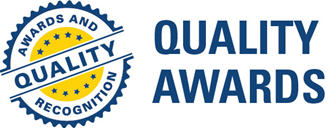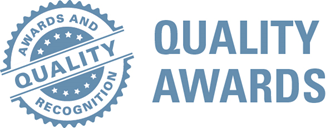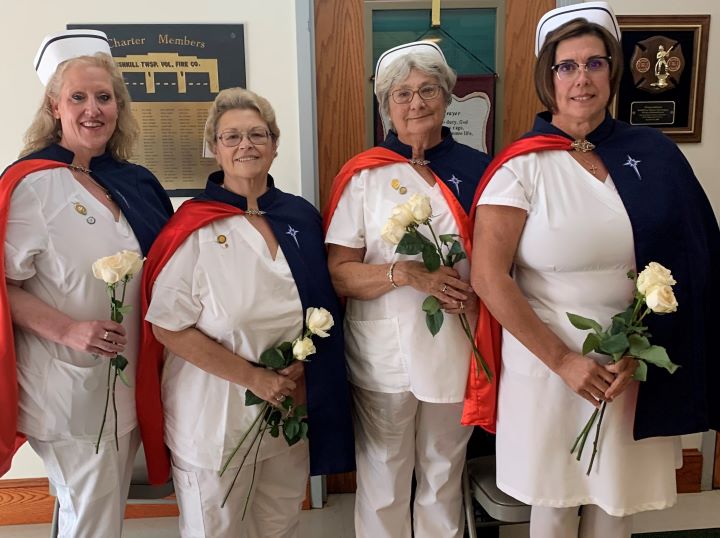

 Quality Awards
Quality Awards

Christine Ritter, Kathyrn Hertzog, Susan Hecker, Denise Snyder
What began as a humble ceremony to honor nurses at their funeral memorial service at St. Luke’s Carbon Campus has grown exponentially in a year’s time to reach every St. Luke’s University Health Network campus.
St. Luke’s Nurse Honor Guard, which pays tribute to nurses who have left this life with the Nightingale Ceremony, has honored more than 120 former nurses as the group celebrated its first anniversary on Feb. 1.
“This is one of the best, if not the best, community service I’ve ever been involved with,” said Denise Snyder, BSN, RN and Lead Chair of the St. Luke’s Nurse Honor Guard, who is a full time ICU nurse at the Carbon Campus.
Very much in the tradition of being buried with military honors, the emotional Nightingale Ceremony is often the last rite performed before the final blessing, and is free to all former nurses, whether they worked in the Network or not.
Snyder said she has participated in 40 to 50 of the ceremonies to honor her fellow nurses, and the sincerity of the ceremony fills the surviving family and friends with a sense of pride.
“I think families find a special sense of closure, that we didn’t forget that they devoted their lives to caring for others,” she said.
“It brings their loved one’s career in nursing full circle. A career in nursing starts by the honor we receive at the time of our capping or pinning at our nursing school graduation. It stays with us throughout our nursing career until the end, when the honor guard performs the final call to duty, which is unanswered. They are then relieved of their nursing duty to rest in peace.”
Last April, Snyder launched the pilot with the support of Marjorie Federanich, St. Luke's Carbon Auxiliary President, and John Nespoli, President of the St. Luke’s University Health Network’s Lehighton and Carbon campuses.
Last June, St. Luke's Home Health and Hospice President Lisa Giovanni attended and was moved by the service. Giovanni and David Gibson, Vice President of Patient Care Services at the Lehighton and Miners campuses, encouraged Snyder to present about the Nurses Honor Guard during the September meeting of the Network Nursing Executive Council. Carol Kuplen, the now-retired Chief Nursing Officer for St. Luke’s University Health Network and President of the Bethlehem Campus, was instrumental in getting the initiative rolled out to all the campuses.
“We have also started to do a Physician's Tribute” Snyder said. “This tribute is for the physician who embody the philosophy of Nurse - Physician relationship who work together to bring the patient to good health.”
Today, more than 130 nurses and former nurses take part in the Nurse Honor Guard, wearing the traditional nurse’s hats and capes for the ceremony.
St. Luke’s Nurse Honor Guard services Lehigh, Luzerne, Northampton, Berks, Bucks, Carbon, Montgomery, Monroe and Schuylkill counties in Pennsylvania, and Warren and Hunterdon counties in New Jersey.
For more information, to request services or volunteer go to Learn More.